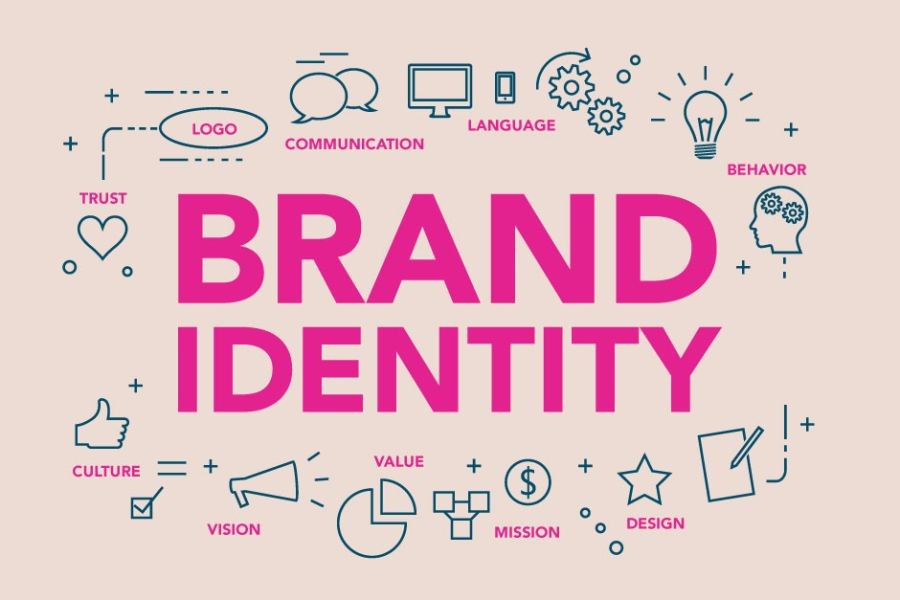In an increasingly competitive global market, building a strong brand identity is vital for businesses aiming to carve out a distinctive niche. In New Zealand, where local culture and values significantly influence consumer behavior, creating a brand that resonates with Kiwi customers can be a game-changer. This article explores how businesses can develop a powerful brand identity, integrating insights from New Zealand’s unique market landscape.
Understanding Brand Identity in the Kiwi Context
Brand identity is more than just a logo or a catchy tagline. It encompasses every aspect of a business's presentation to the world—its values, voice, and the emotional connection it builds with its audience. In New Zealand, brands that align with local values such as sustainability and community support often find greater success. According to a report by Stats NZ, 68% of Kiwis prefer to purchase from brands that demonstrate social and environmental responsibility.
Case Study: Allbirds – A Kiwi Success Story
Allbirds, a company co-founded by New Zealander Tim Brown, exemplifies how a brand can thrive by aligning with local values.
Problem: Allbirds faced the challenge of entering the competitive footwear industry dominated by large, established brands.
Action: The company focused on sustainability and simplicity, using natural materials like merino wool to manufacture their shoes. They marketed their products as environmentally friendly and comfortable.
Result: Allbirds achieved remarkable success, with sales surpassing $100 million within two years. Their commitment to sustainability resonated with consumers not only in New Zealand but globally.
Takeaway: For Kiwi businesses, integrating authenticity and sustainability into brand identity can significantly enhance market appeal.
Data-Driven Insights for Brand Success
Recent data from the Ministry of Business, Innovation and Employment (MBIE) highlights that businesses embracing digital marketing strategies see a 30% increase in customer engagement. However, it’s essential to tailor these strategies to fit the cultural nuances of the New Zealand market.
One emerging trend is the use of AI in crafting personalized marketing campaigns. While this can enhance engagement, businesses must balance personalization with privacy, as consumers are increasingly concerned about data security.
Pros and Cons of Digital Branding Strategies
Understanding the advantages and potential pitfalls of digital branding can guide businesses in making informed decisions.
✅ Pros:
- Higher Engagement: Targeted digital campaigns can increase customer interaction by over 40%.
- Cost-Effectiveness: Digital marketing often provides a higher ROI compared to traditional methods.
- Scalability: Easily adaptable to various business sizes and industry sectors.
❌ Cons:
- Privacy Concerns: Mismanagement of data can lead to consumer distrust.
- Resource Intensive: Requires continuous monitoring and optimization.
- Initial Costs: Set-up and integration of new technologies may require significant investment.
Debunking Common Myths About Branding
Building a brand identity is often shrouded in misconceptions. Here, we address some of the most prevalent myths.
Myth: "A bigger marketing budget guarantees a stronger brand."
Reality: While marketing spend is important, authenticity and consumer trust are pivotal. A study by Nielsen showed that 92% of consumers trust recommendations from friends and family over advertisements.
Myth: "Branding is only about visuals."
Reality: Brand identity is a holistic concept, encompassing customer experience, company values, and public perception.
Future Trends in Branding
The future of branding in New Zealand is likely to be influenced by advancements in technology and shifts in consumer expectations. According to a Deloitte report, by 2026, 50% of customer interactions are expected to be AI-driven, emphasizing the importance of integrating technology with human-centric branding strategies.
Moreover, as the Reserve Bank of New Zealand continues to promote digital innovations, businesses that leverage technology to enhance customer experience without compromising privacy will have a competitive edge.
Conclusion
Building a strong brand identity requires a strategic blend of authenticity, cultural awareness, and technological integration. For New Zealand businesses, embracing local values and leveraging data-driven strategies can create a compelling brand narrative that resonates with consumers. As the market evolves, staying ahead of trends and maintaining consumer trust will be crucial for sustainable success.
What strategies will you implement to enhance your brand identity? Share your insights and join the conversation!
People Also Ask
How does brand identity impact businesses in New Zealand?NZ businesses with strong brand identities report increased customer loyalty and higher market share, according to MBIE.
What are the biggest misconceptions about brand identity?A common myth is that branding is only about visuals. However, branding involves a comprehensive approach including values and consumer experience.
Related Search Queries
- Brand identity strategies for small businesses
- Kiwis’ brand loyalty trends
- Sustainable branding in New Zealand
- Digital marketing trends in NZ
- AI in brand development






























terragooge421
8 months ago